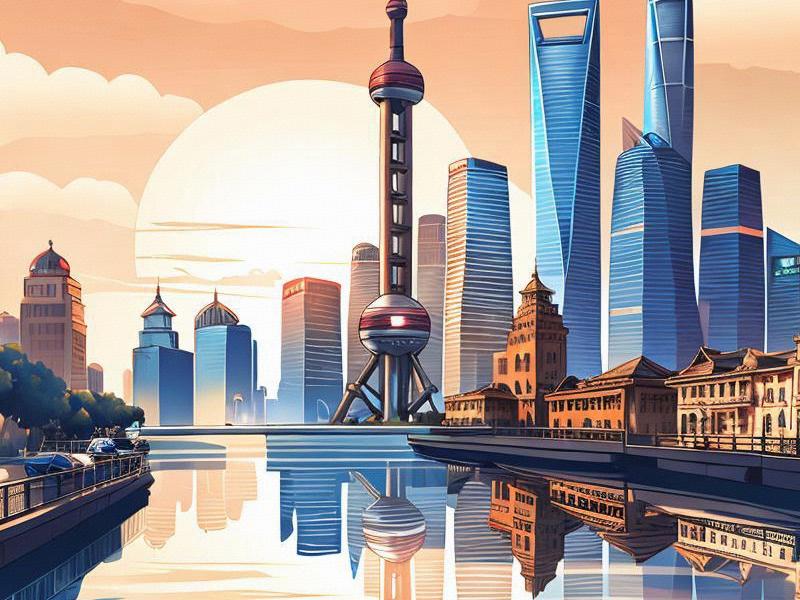Shanghai, often referred to as the "Pearl of the Orient," is a vibrant and dynamic metropolis located on the banks of the Huangpu River in eastern China. As one of the most populous and economically significant cities in the world, Shanghai serves as a global financial center, a cultural melting pot, and a symbol of China's rapid urbanization and modernization.

Shanghai's history dates back thousands of years, but it was during the 19th century that the city began to transform into the cosmopolitan hub we know today. Following the First Opium War in 1842, Shanghai was opened to foreign trade, and the establishment of the International Settlement and the French Concession brought a wave of Western influence. This period of foreign domination laid the foundation for Shanghai's unique blend of Eastern and Western cultures.
In the 20th century, Shanghai became a symbol of China's struggle for independence and modernization. The city was a center of political activism during the May Fourth Movement in 1919 and played a pivotal role in the Chinese Communist Party's rise to power. After the founding of the People's Republic of China in 1949, Shanghai underwent significant changes as it adapted to a socialist economy.
However, it was in the late 20th century that Shanghai truly began to shine on the global stage. The economic reforms initiated by Deng Xiaoping in 1978 set the stage for Shanghai's transformation into a modern metropolis. The development of Pudong, a new district on the east side of the Huangpu River, became a symbol of this rapid urban and economic growth. Today, Pudong is home to some of the world's tallest skyscrapers, including the iconic Oriental Pearl Tower, the Jin Mao Tower, and the Shanghai Tower.
Shanghai's economy is one of the most dynamic in the world, driven by its status as a global financial center. The city is home to the Shanghai Stock Exchange, one of the largest stock exchanges in Asia, and is a major hub for international trade and commerce. Key industries include finance, manufacturing, technology, real estate, and tourism. Shanghai's port, the Port of Shanghai, is the busiest container port in the world, handling millions of containers annually.
爱上海论坛
The city's rapid economic growth has been accompanied by significant urban development. Modern skyscrapers and high-rise buildings have transformed the skyline, while extensive infrastructure projects, such as the Maglev train connecting Pudong International Airport to the city center, have improved transportation and connectivity. The Bund, a historic waterfront area, has been revitalized with modern architecture and luxury developments, offering stunning views of the Pudong skyline.
Culturally, Shanghai is a city of contrasts and diversity. The old French Concession, with its tree-lined streets and historic buildings, offers a glimpse into the city's colonial past. The Yu Garden, a classical Chinese garden, provides a serene escape from the bustling urban life. The city is also home to numerous museums, theaters, and cultural institutions, such as the Shanghai Museum, the Shanghai Grand Theatre, and the Power Station of Art, which showcase both traditional Chinese art and contemporary works.
Shanghai's culinary scene is another highlight, reflecting the city's rich cultural heritage and international influences. From traditional Shanghainese dishes like Xiaolongbao (soup dumplings) and Shengjianbao (pan-fried buns) to international cuisines, the city offers a wide variety of dining experiences. Night markets and food streets, such as Nanxiang Mantou Dian and the Yuyuan Bazaar, provide an authentic taste of local flavors.
上海龙凤论坛419
Education is a key focus in Shanghai, with the city boasting some of the best universities and research institutions in China. Fudan University, Tongji University, and East China Normal University are among the prestigious institutions that attract students from around the world. Shanghai's commitment to education and innovation has positioned it as a leader in research and development.
Tourism is a significant contributor to Shanghai's economy, with millions of visitors drawn to the city's unique blend of history, culture, and modernity. Major attractions include the Bund, the Oriental Pearl Tower, the Shanghai Tower, the Yu Garden, and the Nanjing Road shopping street. The city also hosts numerous cultural festivals and events throughout the year, such as the Shanghai International Film Festival and the Shanghai Fashion Week.
Despite its rapid development, Shanghai faces challenges related to urbanization, environmental sustainability, and social inequality. The city has implemented various initiatives to address these issues, including green building standards, public transportation improvements, and social welfare programs. The expansion of the Shanghai Metro system, one of the most extensive in the world, has helped reduce traffic congestion and promote sustainable urban living.
上海贵族宝贝sh1314
Shanghai's role as a global city is further enhanced by its international collaborations and partnerships. The city is a member of the Global Cities Initiative and the World Expo Organizing Committee, having hosted the 2010 World Expo, which attracted millions of visitors from around the world. Shanghai continues to play a leading role in global affairs, fostering international trade, cultural exchange, and technological innovation.
In conclusion, Shanghai is a city that embodies the spirit of modern China while preserving its rich cultural heritage. Its rapid economic growth, urban development, and cultural diversity make it a fascinating destination for residents and visitors alike. As Shanghai continues to evolve, it remains a symbol of China's aspirations for a prosperous and harmonious future.